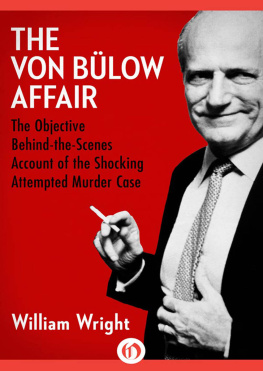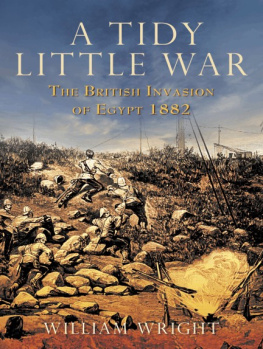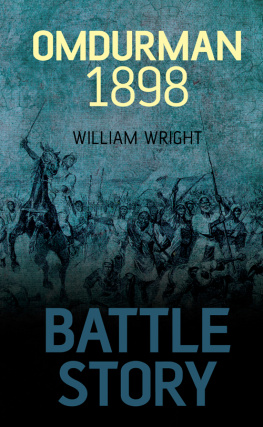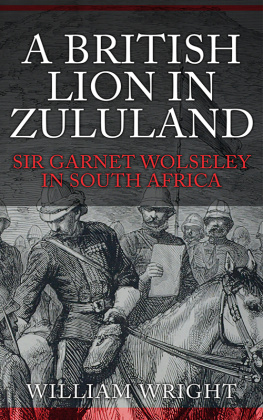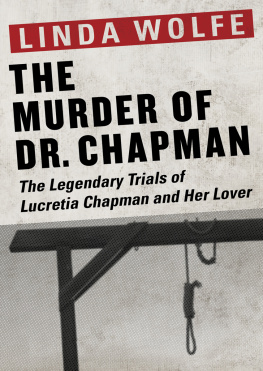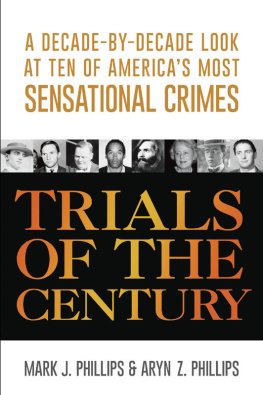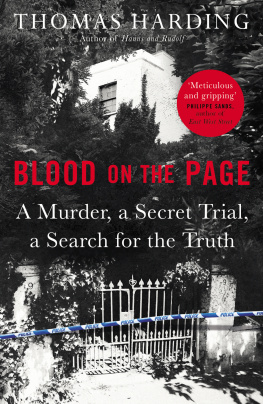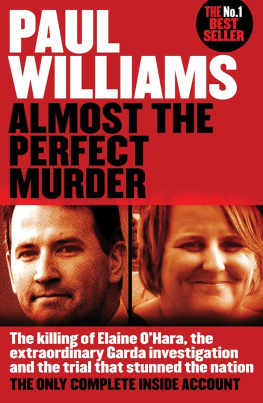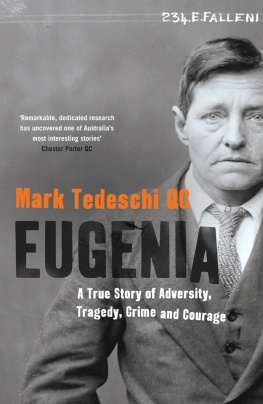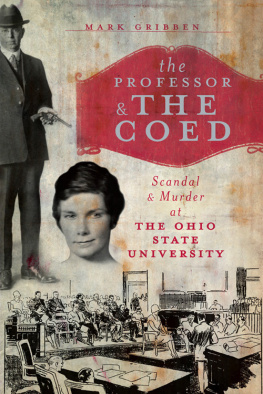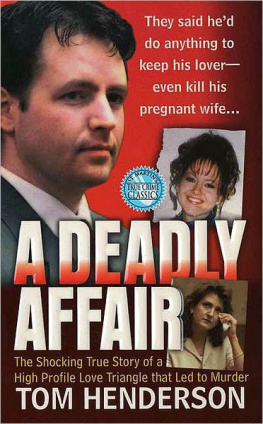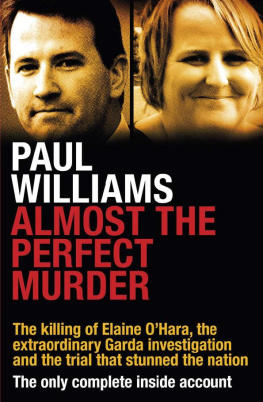The Von Blow Affair
The Objective Behind-the-Scenes Account of the Shocking Attempted Murder Case
William Wright

FOR HELEN BRANN
Who proved invaluable as a friend and an agent
even before she suggested I write this book.
Preface
When I left Newport in March of 1982 and began to write up my four-hundred pages of notes from the Von Blow trial, I was astonished at the broadened perspective given the story by the process of taking the six-week outpouring of testimonyand arranging chronologically the events leading up to and following the two murder attempts Von Blow was accused of committing. The result was a full-blown drama, one that developed the inherent themes of treachery, betrayal, intrigue, and retribution.
All of the plot elements were present in the courtroom record. We had the Meek-Bring-Down-the-Mighty aspect of the maids crucial role; the house of Atreus struggle of the children with the man who raised them; the vulnerability to those most trusted; the possibility that the rich enjoy a different brand of justice.
Testimony had also provided abundant background color: opulent settings, anachronistic privilege, impenetrable social bastions. I had no doubt the trial alone produced more than enough material for a gripping book.
As I began interviewing the principals in the case, however, I came to realize that the courtroom revelations represented only a portion of the story. Much of what occurred prior to the public airing of the scandal had not emerged. Also undisclosed were ramifications from witness-stand disclosures, ramifications that were devastating and, in some cases, permanent. I began to see the trial as an earth-mover dredging deep into a number of livesleaving some aspects exposed but ravaging and burying others.
After spending considerable time with the major characters on both sides, I came to realize that I had been deeply affected by my year-long immersion in these intense feelings and outsized happenings. As a chronicler of the case I tried to keep my goal an evenhanded presentation of the story, one that would permit readers to make up their own minds. That is not to say I didnt form conclusions, but I struggled to put them off as long as possible.
O N a Saturday in March, 1982, in a small room behind the courtroom of the Newport, Rhode Island, courthouse, Claus Von Blow called gin to John Sheehan, one of his lawyers, laid down his cards, rose, and walked to the window. He glanced down to the street below at the crowd that had grown each of the three days since the jury had been out deciding if he had twice tried to murder his wife, Sunny.
As the Newporters spotted Von Blow at the window, they sent up a cheer that evolved into a rhythmic Free Claus, Free Claus! He smiled and waved, then returned to the table. His other lawyer, Herald Fahringer, sat reading over the juror profiles they had assembled at the start of the trial. The jury had been deliberating for three days and the tension was beginning to show on the defendant and his counsel. Prolonged deliberations were not a good sign; uncertain jurors were being made certain, lessening the chances of a hung jury.
In the nearby room that served as a similar retreat for the prosecution team, Lieutenant John Reise, the Rhode Island state trooper who conducted the investigation of Von Blow, sat chatting with Susan McGuirl, the Deputy Attorney General of Rhode Island. Both had been at the prosecution table throughout the trial, backing up the prosecutor of the case, Stephen Famiglietti. Reise was rehashing, perhaps for the fifth time, the significance of the only development since the jury was sent out: their request for a reading of portions of the testimony of Sunnys maid, Maria Schrallhammer.
She was one of our best witnesses, Reise said. If you believe her story, how could you think that guy was innocent? If you dont believe it, why would you want to hear it a second time?
Famiglietti, who had just come in, threw his briefcase on the table and said, They wanted her recipe for eggnog.
In his chambers behind the bench, Judge Thomas H. Needham sat mulling over a note he was planning to send into the jury, a water-testing ploy to learn if they were making progress, needed help, or were deadlocked. His wife, Ursula, who had come to the courthouse every day since the jury went out, sat reading near his desk. A sheriff entered to discuss arrangements for convoying the jury from the courthouse after the verdict.
In a far corner of the courthouse the jurors sat around a large table, two at each end and four down each side, thrashing over the six weeks of testimony. While they had not yet taken a formal vote, they knew how each felt. At the moment, four of them were not convinced that the prosecutions case removed all reasonable doubt of Von Blows guilt.
No one pressured the hold-outs. An unspoken strategy had sprung up among the eight who were convinced of his guilt; they feared that any attempt to lean on the others might drive them into a vote for acquittal. One of the four undecided jurors, a woman, spoke of her sleepless struggle with the evidence the previous night. With mounting emotion she said that she could no longer doubt his guilt. The other eleven jurors knew what the woman was suffering. Her announcement made, she suddenly blurted out, How could he do that to his own daughters mother? and she burst into tears. Two of the other jurors cried as well.
Outside on the steps of the Colony House, the eighteenth-century statehouse that had been converted into a press headquarters, a reporter asked a woman who was wearing a T-shirt on which Von Blows photo was captioned with the one word Innocent, what made her so sure. She replied cheerfully, He has the most beautiful eyes! A man carrying a Free Claus placard said, Its him against all of them; hes the underdog.
Inside the press headquarters, 140 media peopleprint and television journalists and cameramenstepped around the snarl of cables, phone wires, and work tables, watched basketball on the TV monitors, typed filler stories on the Free Claus groundswell, and even interviewed each other to fill home office demands for something, anything, on the Von Blow trial. From her table at the far end of the vast room, New York Daily News reporter Theo Wilson, who had covered every major American trial of the past quarter century, from Dr. Sam Shepherd to Jack Ruby to Patty Hearst to Mrs. Harris, looked around the room and told a kibitzer that she had never seen a trial receive so much press coverage.
Copies of the days New York Post and Daily News strewn around the press tables carried stories of a Missouri woman who was indicted for murdering her seventh husband with insulin injection. This jolted the many who had been drawn to the Newport case by the all but unheard of method of murder Von Blow was alleged to have attempted.
At the Providence Journal table, the four reporters who had worked on the trial since its beginning sat playing a variation of Scrabble they had invented and named Von Scrabble: every word formed had to relate to the case. Someone had laid down the word Valium; the next player was persuading the others that the word money he was hanging from the m of Valium was not too general and was certainly central to this case.
At one of the network tables circled around the courtroom monitor, CBSs Liz Trotta chatted with Richard Kuh, the lawyer hired by the victims family to start the investigation of Von Blow. When the CBS phone rang, Kuh slipped away and headed up Touro Street to visit the 1759 Touro Synagogue, the oldest synagogue in America.

